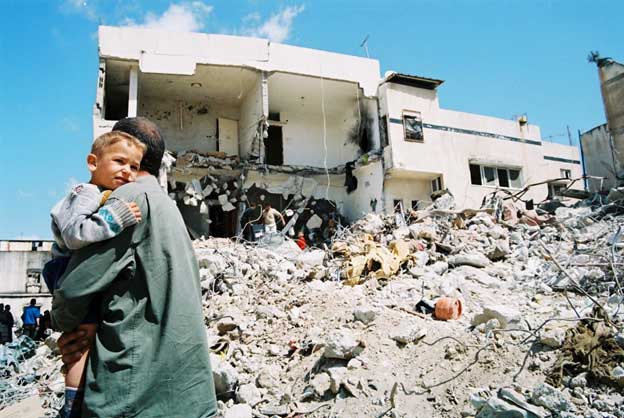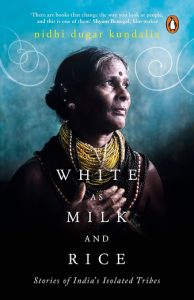By Thalif Deen
UNITED NATIONS, Apr 30 2021 (IPS) – When the UN’s Beirut-based Economic and Social Commission for Western Asia (ESCWA), released a landmark 2017 report on “apartheid” in Israel, the United Nations disassociated itself with the study and left it to die— unceremoniously and unsung. According to a March 2017 report in Foreign Policy Journal, both the Israeli and the Trump administrations put “enormous pressure on UN Secretary-General António Guterres to withdraw the report”.
But the head of the ESCWA, Rima Khalaf, refused to withdraw it and resigned from her UN position in protest. Later, Palestinian President Mahmoud Abbas announced he will award Khalaf the Palestine Medal of the Highest Honor for her “courage and support” for the Palestinian people.
And now, more than four years later, the apartheid policies of Israel have come back to haunt the United Nations with the release, on April 27, of a detailed report which says Israel’s abusive apartheid policies towards Palestinians constitute “crimes against humanity.”
Authored by Human Rights Watch (HRW), a widely known international human rights organizations, the 213-page report, “A Threshold Crossed: Israeli Authorities and the Crimes of Apartheid and Persecution,” singles out “the overarching Israeli government policy to maintain the domination by Jewish Israelis over Palestinians and grave abuses committed against Palestinians living in the occupied territory, including East Jerusalem.”
Originally coined in relation to South Africa, “apartheid” today is a universal legal term, says HRW, pointing out that the prohibition against particularly severe institutional discrimination and oppression or apartheid constitutes a core principle of international law.
But whether the new report will have any impact on the UN is doubtful.
Asked whether the UN should re-visit its own 2017 report on Israel and apartheid, UN spokesperson Farhan Haq told reporters April 27: “Well, again, without characterizing it one way or another, we have been getting the various facts out about the situation on the ground, including in the report, by the way, that you mentioned, which, I believe, the facts of the report were released, and we’ll continue to do that. Ultimately, it’s important to have a solid base of information about what’s happening, and that’s what we try to provide.”
Dr Richard Falk, professor emeritus of international law at Princeton University, who co-authored the 2017 UN report, told IPS the narrative of the apartheid discourse (extends) from the original smears at the UN to the B’Tselem Report, and now the HRW Report.
The Israeli Basic Law of 2018, which proclaimed Israel as an apartheid state without using the word, he said.
“The one large issue in which the critical discourse still lags behind what we argued in 2017 is the insistence that Israeli apartheid is best conceptualized by reference to the Palestinian people rather than land”
“We believed this is an essential element because Israeli apartheid unlike South African apartheid created a victimized Palestinian diaspora by way of ethnic cleansing, and still shout the slogan ‘less Arabs, more land,’ said Dr Falk, who served a six-year term as the UN Special Rapporteur on “the situation of human rights in the Palestinian territories occupied since 1967.”
Kenneth Roth, executive director of Human Rights Watch, said “prominent voices have warned for years that apartheid lurks just around the corner if the trajectory of Israel’s rule over Palestinians does not change.”
“This detailed study shows that Israeli authorities have already turned that corner and today are committing the crimes against humanity of apartheid and persecution,” he added.
Dr. Ramzy Baroud, a journalist and editor of The Palestine Chronicle, told IPS the HRW report was indeed historic, though overdue. “As pointed out by an equally earth-shattering UN report in March 2017, Israel is already an apartheid state”.
“In fact, we can take this further and claim that a country that is essentially founded on the racial supremacy of one group and racial discrimination against another, is, per academic definition at least, an apartheid state”, he argued.
What the HRW report has done is providing more than an intellectual argument regarding Israel’s apartheid status, but a legal one, he added.
“This is crucial because Palestinians and the supporters of their struggle everywhere can now push for legally indicting Israel for its ongoing crime of apartheid, which should be added to the imminent International Criminal Court investigation of crimes committed in occupied Palestine.”
Even though the UN report in 2017 was pulled out under US pressure, Dr Baroud said, the legal arguments it contained remain valid.
Since then, two equally important voices were added to strengthening the argument of Israeli apartheid, a decisive and comprehensive report by the prominent Israeli rights group B’tselem in January and the just-released HRW’s report.
Judging by the evolution of the language considering Israel’s systematic racism and apartheid in Palestine, it is now a matter of time before the label, that of apartheid, becomes synonymous with Israel, as at one point in the past became synonymous with South Africa before apartheid was dismantled, he noted.
“Despite its relentless efforts at winning the legitimacy war and launching smear campaigns against anyone who dares to criticize it, Israel is losing, not only the moral war but the legal battle as well.”
This is good news for anyone who supports justice in Palestine, said Dr Baroud, a Non-resident Senior Research Fellow at the Center for Islam and Global Affairs (CIGA), Istanbul Zaim University, and at the Johannesburg-based Afro-Middle East Center (AMEC). www.ramzybaroud.net.
In its report, Human Rights Watch found that the elements of the crimes come together in the occupied territory, as part of a single Israeli government policy.
“That policy is to maintain the domination by Jewish Israelis over Palestinians across Israel and the occupied territory. It is coupled in the occupied territory with systematic oppression and inhumane acts against Palestinians living there”.
Drawing on years of human rights documentation, case studies, and a review of government planning documents, statements by officials, and other sources, HRW compared policies and practices toward Palestinians in the occupied territory and Israel with those concerning Jewish Israelis living in the same areas.
It also wrote to the Israeli government in July 2020, soliciting its perspectives on these issues, but received no response.
Across Israel and the occupied territory, Israeli authorities have sought to maximize the land available for Jewish communities and to concentrate most Palestinians in dense population centres, HRW said.
The authorities have adopted policies to mitigate what they have openly described as a “demographic threat” from Palestinians.
In Jerusalem, for example, the government’s plan for the municipality, including both the west and occupied east parts of the city, sets the goal of “maintaining a solid Jewish majority in the city” and even specifies the demographic ratios it hopes to maintain.
To maintain domination, Israeli authorities systematically discriminate against Palestinians. The institutional discrimination that Palestinian citizens of Israel face includes laws that allow hundreds of small Jewish towns to effectively exclude Palestinians and budgets that allocate only a fraction of resources to Palestinian schools as compared to those that serve Jewish Israeli children.
In the occupied territory, the severity of the repression, including the imposition of draconian military rule on Palestinians while affording Jewish Israelis living in a segregated manner in the same territory their full rights under Israel’s rights-respecting civil law, amounts to the systematic oppression required for apartheid.
Ambassador Gilad Erdan, Israel’s envoy to the US, dismissed the report as bordering on anti-Semitism. “When the authors of the report cynically and falsely use the term apartheid, they nullify the legal and social status of millions of Israeli citizens, including Arab citizens, who are an integral part of the state of Israel,” he said.
Thalif Deen, Senior Editor at the UN Bureau of Inter Press Service (IPS) news agency, is the author of a newly-released book on the United Nations titled “No Comment and Don’t Quote Me on That” available on Amazon. The link to Amazon via the author’s website follows:
https://www.rodericgrigson.com/no-comment-by-thalif-deen/




